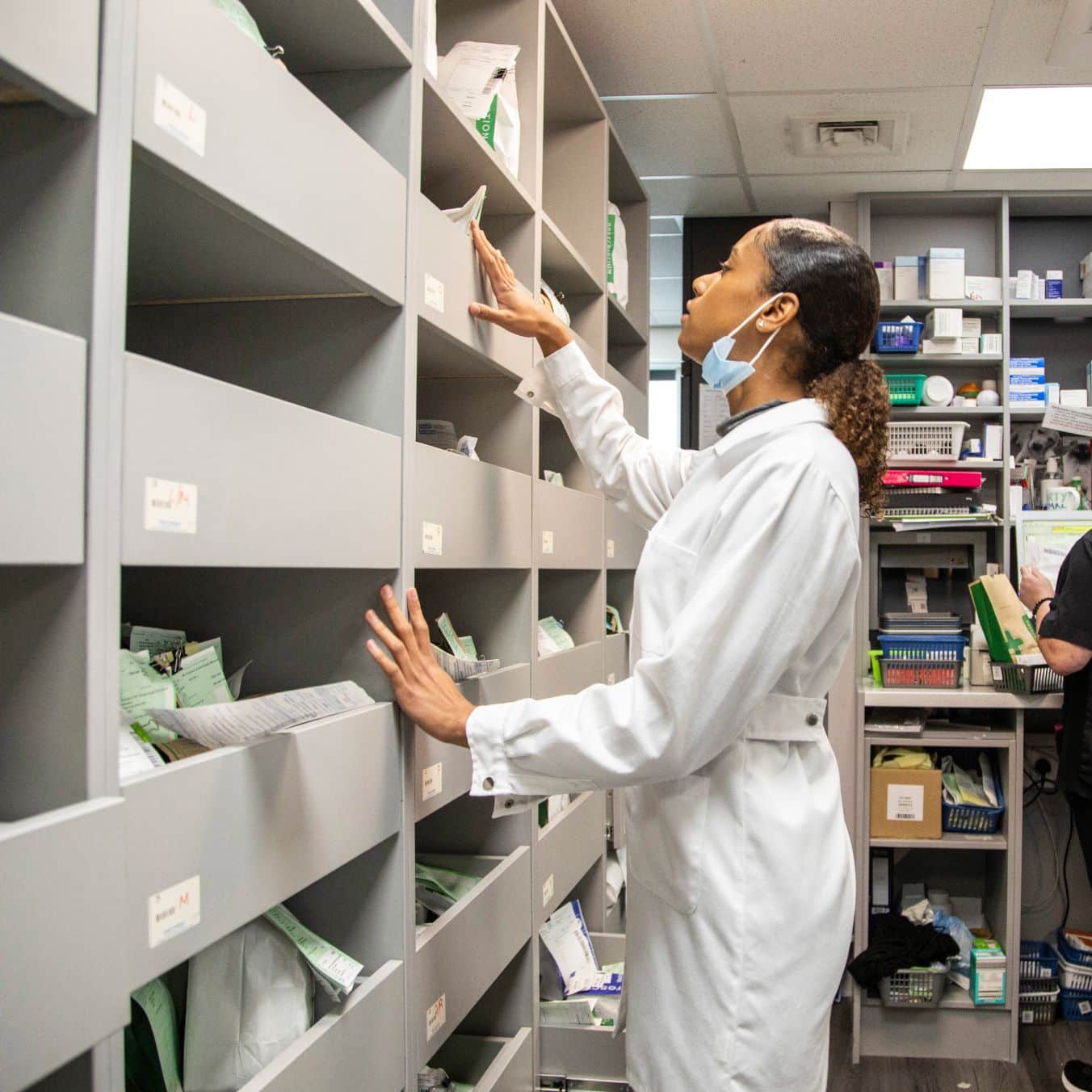How to Build a Resilient Pharma Distribution Network
with Multi-Carrier Solutions

In today’s global economy, pharmaceutical distribution faces a host of unique and complex challenges. From stringent regulatory requirements to the demands of maintaining temperature control across long distances, this industry’s supply chain is one of the most intricate. Moreover, global events — such as the COVID-19 pandemic, Brexit, and geopolitical tensions — have undoubtedly underscored the importance of resilience in pharmaceutical distribution networks.
Building this resilience into pharma supply chains, therefore, requires a strategic, adaptive approach. Specifically, multi-carrier systems introduce a flexible, diversified network that helps businesses better respond to disruptions, navigate regulatory challenges and secure sensitive shipments. In addition, robust multi-carrier solutions not only mitigate risks but ensure that patients receive essential medications on time and in optimal condition.
Understanding the Pharma Distribution Landscape
Pharmaceutical distribution is highly regulated and must adhere to strict guidelines, both to protect the integrity of the medications and to comply with international standards. Consequently, some of the primary challenges in the industry are:
Regulatory Compliance
To ensure the safety and quality of pharmaceuticals, companies must comply with Good Distribution Practice (GDP) guidelines. These guidelines, as outlined in UK Government regulations, establish standards for handling, storing and transporting pharmaceuticals. Moreover, compliance is essential to safeguarding public health.Temperature Control Requirements
Temperature-sensitive products make up a significant portion of pharmaceuticals, especially vaccines and biologics. Transporting these products safely requires strict temperature monitoring and control, as outlined by the NHS temperature control guidelines. Deviations in temperature can compromise product efficacy, and even minor fluctuations can impact patient health. Additionally, this can lead to significant financial losses if the products become unusable during delivery.Security and Anti-Counterfeiting Measures
Ensuring the authenticity and security of pharmaceutical products is critical, given the high value and sensitivity of the products. Consequently, companies must implement anti-counterfeiting and security measures to prevent the illegal trade of counterfeit medicines, which can endanger patient lives and tarnish a company’s reputation.
The pandemic, and the recent impact of drug shortages, have highlighted how fragile supply chains can be, with unexpected delays, border restrictions, and labour shortages. Similarly, Geopolitical tensions have also added complexity, as international trade regulations shift rapidly. It is now more important than ever to build a resilient distribution network that can adapt quickly to changes while maintaining a reliable, efficient distribution network.
Key Components of a Resilient Pharma Distribution Network
To build a robust and adaptive pharmaceutical distribution network, companies should focus on these key elements:

Diversification of Carrier Options
Partnering with multiple carriers helps avoid dependency on any single service provider, reducing the impact of potential disruptions. By creating a diversified network, pharmaceutical companies can continue deliveries even when one carrier experiences delays or logistical issues.Real-Time Visibility and Tracking
Tracking shipments in real-time allows for proactive problem-solving. It ensures that temperature-sensitive shipments are monitored continuously, and deviations can be addressed immediately. This visibility helps companies meet regulatory requirements while maintaining high service levels.
Risk Assessment and Mitigation Strategies
Risk assessment is essential for identifying potential vulnerabilities in the supply chain. By implementing mitigation strategies, companies can develop contingency plans that address disruptions from weather events, transportation delays, or security breaches.Flexibility and Adaptability in Routing
The ability to adjust routes dynamically based on real-time data helps companies avoid bottlenecks and reduce delivery times. Adaptive routing is crucial for time-sensitive pharmaceutical products that require rapid, uninterrupted distribution.Integration of Technology
Advanced technologies, such as Internet of Things (IoT) sensors and blockchain, provide greater transparency, security and traceability. Technology integration also facilitates compliance with regulatory standards and streamlines communication across the supply chain.
Implementing Multi-Carrier Solutions in Pharma Distribution
At GFS, we understand the critical need for resilience in pharmaceutical distribution and offer a range of services to help companies establish a multi-carrier network. Here’s how we can support your organisation in building a resilient, compliant, and adaptable supply chain:
Diversify Your Current Distribution Network
With GFS’ extensive network of carrier partners, you gain access to a variety of carriers, ensuring reliability and flexibility. This diversity enables you to distribute risk and maintain continuity in operations, even when unforeseen events impact one or more carriers.Clear Communication Channels, Visibility and Protocols
Effective communication and transparency are central to managing pharmaceutical logistics. With GFS’ B2B delivery services, companies benefit from clear communication channels, reliable protocols, and real-time visibility, ensuring that each shipment can be monitored and managed from origin to destination. This capability provides peace of mind for temperature-sensitive shipments and helps maintain compliance with all necessary guidelines.Regulatory Compliance Assistance
Compliance with regulations, especially those concerning cross-border controls, is a top priority for pharmaceutical distribution. GFS International offers support in navigating regulatory requirements, including customs declarations and taxes. This assistance simplifies the complexities of cross-border compliance, allowing companies to stay focused on their primary goals while staying compliant with global distribution standards.

Future Trends in Pharma Distribution
As the pharmaceutical industry evolves, distribution networks must adapt to meet emerging trends. Here’s a look at what the future holds:

Emerging Technologies
Blockchain, for instance, is poised to providing a secure and transparent record for each shipment. This is crucial for ensuring product authenticity and meeting compliance requirements. IoT sensors and AI-driven data analytics will also play a significant role in the future.Sustainability in Distribution Networks
Sustainability is becoming a priority in logistics, with companies striving to reduce their carbon footprint. Solutions like eco-friendly packaging, electric vehicles, and optimised delivery routes are essential to reducing environmental impact, which is becoming increasingly important in corporate social responsibility initiatives.Regulatory Changes and Their Impact
The pharmaceutical industry must stay vigilant as regulatory requirements evolve. Anticipated changes in European Union regulations, as discussed in the European Parliament’s recent brief, could have far-reaching implications for international distribution. Staying compliant with these changes will be critical for pharmaceutical companies seeking to expand into global markets.
The challenges facing pharmaceutical distribution networks require a proactive, resilient approach to logistics. Consequently, building a resilient pharma distribution network with multi-carrier solutions can help ensure the safe, timely delivery of essential medicines to those who need them most.
By partnering with GFS, companies gain access to the expertise and tools necessary to create a flexible, compliant, and sustainable supply chain.
To learn more about how GFS can support your pharmaceutical distribution needs, contact our B2B team. Let us help you build a resilient network that’s prepared for the future.










